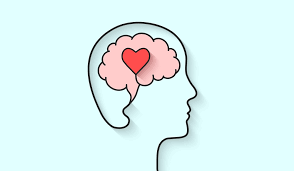The Importance of Mental Health: Taking Care of Your Well-Being
Our mental health is just as important as our physical health. It encompasses our emotional, psychological, and social well-being and affects how we think, feel, and act. Taking care of our mental health is essential for overall well-being and quality of life.
Just like we prioritize regular exercise and a balanced diet for our physical health, we must also pay attention to our mental well-being. Here are some key points to consider:
Recognizing the Signs
It’s crucial to recognize the signs of poor mental health, such as persistent feelings of sadness, anxiety, irritability, or changes in sleep patterns. Ignoring these signs can lead to more serious issues down the road.
Seeking Help
Seeking help is a sign of strength, not weakness. Whether it’s talking to a therapist, counselor, or trusted friend, reaching out for support can make a significant difference in managing your mental health challenges.
Self-Care Practices
Engaging in self-care practices such as meditation, exercise, hobbies you enjoy, and spending time with loved ones can help reduce stress and improve your overall mental well-being.
Breaking the Stigma
Mental health stigma can prevent individuals from seeking help due to fear of judgment or discrimination. By openly discussing mental health and advocating for support and understanding, we can break down these barriers.
Creating Healthy Habits
Maintaining healthy habits such as getting enough sleep, eating nutritious foods, staying active, and practicing mindfulness can go a long way in supporting your mental health.
Remember that taking care of your mental health is an ongoing process that requires attention and effort. By prioritizing your well-being and seeking help when needed, you can cultivate resilience and lead a fulfilling life.
Top 7 Frequently Asked Questions About Mental Health
- What is mental health?
- What are the common signs of poor mental health?
- How can I improve my mental health?
- When should I seek professional help for my mental health?
- What are some self-care practices for maintaining good mental health?
- How does stress impact mental health?
- Are there resources available for individuals experiencing mental health challenges?
What is mental health?
Mental health refers to our emotional, psychological, and social well-being, encompassing how we think, feel, and behave. It is a vital aspect of overall health and plays a significant role in our daily lives. Good mental health enables us to cope with stress, make meaningful relationships, work productively, and contribute to our communities. Recognizing the importance of mental health involves understanding and nurturing our emotional resilience, seeking support when needed, and maintaining healthy habits that promote well-being. By acknowledging the value of mental health and addressing any challenges that arise, we can strive for a balanced and fulfilling life.
What are the common signs of poor mental health?
Recognizing the common signs of poor mental health is crucial for early intervention and support. Some common indicators include persistent feelings of sadness or hopelessness, overwhelming anxiety, extreme mood swings, withdrawal from social activities, changes in sleep patterns, loss of interest in previously enjoyed activities, difficulty concentrating or making decisions, increased irritability or anger, and unexplained physical ailments. It’s important to pay attention to these signs and seek help from a mental health professional if you or someone you know is experiencing these symptoms. Remember, seeking support is a proactive step towards improving mental well-being.
How can I improve my mental health?
Improving your mental health involves a combination of self-care practices, seeking professional help when needed, and making positive lifestyle changes. Start by prioritizing activities that bring you joy and relaxation, such as engaging in hobbies, spending time in nature, or practicing mindfulness and meditation. Establishing a routine that includes regular exercise, nutritious eating habits, and adequate sleep can also have a significant impact on your mental well-being. Additionally, don’t hesitate to reach out to a therapist or counselor for support and guidance if you’re struggling with persistent feelings of anxiety, stress, or low mood. Remember that taking small steps towards self-care and seeking help when necessary are essential components of improving your mental health.
When should I seek professional help for my mental health?
Recognizing when to seek professional help for your mental health is crucial for your overall well-being. If you find yourself experiencing persistent feelings of sadness, anxiety, hopelessness, or if your daily functioning is significantly impacted by your mental health symptoms, it may be time to seek support from a mental health professional. Additionally, if you notice changes in your sleep patterns, appetite, energy levels, or if you are struggling to cope with everyday stressors, reaching out for professional help can provide you with the tools and resources needed to navigate these challenges effectively. Remember, seeking help is a proactive step towards prioritizing your mental health and working towards a healthier and more balanced life.
What are some self-care practices for maintaining good mental health?
Self-care practices play a crucial role in maintaining good mental health. Some effective strategies include practicing mindfulness and meditation to calm the mind, engaging in regular physical exercise to release endorphins and reduce stress, getting an adequate amount of quality sleep to support cognitive function and emotional well-being, nurturing social connections by spending time with loved ones or joining supportive communities, setting boundaries to protect your time and energy, and engaging in activities that bring joy and relaxation. Prioritizing self-care practices can help promote resilience, reduce symptoms of anxiety and depression, and enhance overall mental well-being.
How does stress impact mental health?
Stress can have a significant impact on mental health, affecting various aspects of well-being. When exposed to prolonged or intense stress, individuals may experience symptoms such as anxiety, depression, irritability, and difficulty concentrating. Chronic stress can also contribute to the development of mental health disorders like generalized anxiety disorder or major depressive disorder. Additionally, high levels of stress can weaken the body’s immune system, making individuals more susceptible to physical health issues. It is crucial to recognize the signs of stress and take proactive steps to manage it effectively in order to safeguard one’s mental health and overall quality of life.
Are there resources available for individuals experiencing mental health challenges?
For individuals experiencing mental health challenges, there are various resources available to provide support and assistance. These resources include mental health hotlines, crisis intervention services, therapy and counseling options, support groups, community mental health centers, online resources and forums, as well as educational materials on mental health awareness and self-care practices. Seeking help from these resources can offer guidance, comfort, and tools to navigate mental health challenges effectively and promote overall well-being. It is important for individuals to know that they are not alone in their struggles and that help is accessible when needed.



